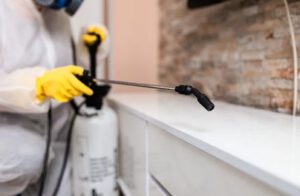Effective and Best Pest Control is essential in many ways. You can use physical barriers to keep pests out of specific areas and/or exclude them altogether. Some methods include animal traps and sticky cards to detect pests and insecticide spraying. You can use mulch, tree trunk guards, and fences to control infestations for plants. Pests will remain in areas that physical barriers have protected for several weeks. A physical barrier can also help prevent the growth of harmful fungi and bacteria.
Insect predators for structural pests have met with limited success. While nematodes have been used against termites in lab tests, they have not proven effective in the field. Parasitic wasps have proven ineffective against various cockroach species. Biological control methods can also help control the population of insect pests. However, if you are serious about reducing pests in your home, it is better to seek professional help.
Before you start applying pesticides, research the pest to determine the type of treatment. Before you apply pesticides, you should know about its habits, feeding habits, and habitat. Learn about the pest’s habits and needs, as these can be detrimental to you, animals, and buildings. Once you understand its weaknesses, you can choose the appropriate pest control strategy. If your research results in the need for a chemical pesticide, you can also use the mechanical approach.
The next step is to monitor the pest situation. Monitoring will help you determine where the pests are causing the problem and where to target the treatment. Use the facilities & services service request form to report any pest sightings. The inspector should be able to answer all your questions and help you understand the specific pest problem you have. As long as the pests are not directly threatening human health, you should not use any chemicals. Only in such situations should you seek professional help.
Biological control is another method. The main difference between biological and chemical pest control is that biological control relies on natural enemies. The biological approach involves using natural predators such as birds, animals, and fungi that feed on pest larvae. The second method is inoculation, which releases natural enemies at periodic intervals. These methods are considered safe and effective, and are often preferred over chemical methods. This is because the biological approach is less expensive than other forms of pest control.
The use of chemical pesticides is often inappropriate, as they kill the natural enemies of the target pest, and can result in secondary infestations. Additionally, improper use of pesticides can cause the development of resistant organisms that can resist the chemical. This is especially important for plants and people. Therefore, pesticides are important to keep in mind if you want to protect yourself and your family. You will want to choose the safest and most effective methods of control.
If you’ve noticed an infestation of cockroaches, rodents, and other undesirable creatures, it’s likely you need pest control services. Pests can cause a wide range of problems, ranging from health issues to damage to property. Pest control companies can provide a comprehensive solution that addresses the needs of both individuals and the environment. If you’re experiencing any of these problems, it’s important to take care of them as quickly as possible.
While pests are an important part of the environment, they are just as damaging to your property. Rodents can gnaw at grain and contaminate it. They can also damage buildings. Besides eating grain, they can also cause electrical fires. You should make your building as tight as possible. However, mice and rats can enter through small cracks and ventilation openings. Also, they can enter your home through roof-wall junctions.
Chemical pest control is most effective when used in severe infestations. Insecticides are derived from natural sources or are synthesized. There are synthetic and organic insecticides for virtually every type of insect pest. These chemicals are widely used in industrialized countries due to their relatively low cost and high efficiency. Chemical pesticides are more predictable and require less labor than physical control methods. They are also useful in controlling disease-carrying insects.
Technicians in pest control departments are responsible for identifying and preventing pest problems. They conduct inspections and design pest-control strategies to deal with the problem. Unlike technicians, applicators handle more severe pest problems. They may even fumigate houses to deal with large infestations. This profession is full-time and requires a high school diploma. Most technicians receive formal training through the company. In the United States, a high school diploma is required to enter this field.

